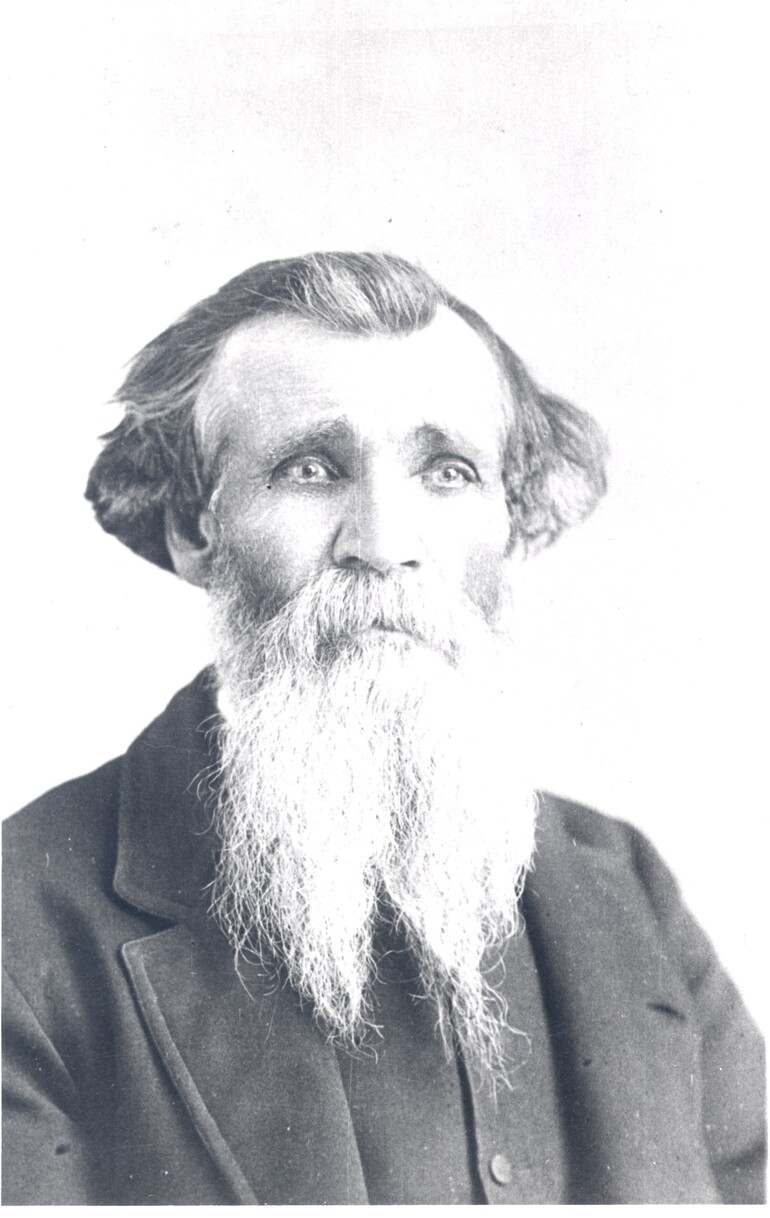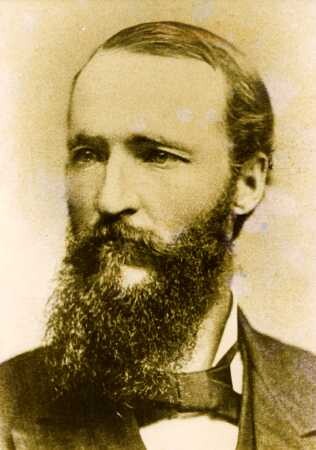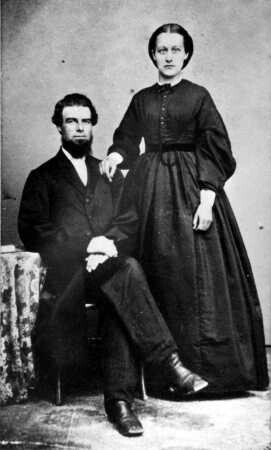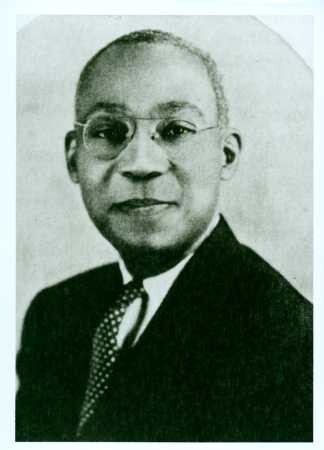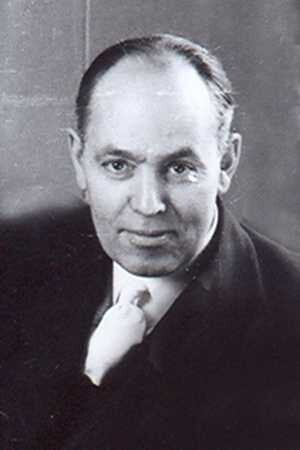Every day thousands of women are handed crying bundles and, along with their spouses, face the daunting job of giving their infants permanent names. Women in the 19th and early 20th centuries frequently gave birth to 10 or more children, dealing with this important task on a regular basis. Many times they turned to the Bible for names. One can understand why parents would choose names like Moses, Sarah, Elijah, Martha and Noah; but one has to wonder about the thought that went into names such as Samaria and Nineveh.
In many ways Nineveh Ford was typical of the pioneers in the Pacific Northwest. He was strong-willed, independent, resourceful and opinionated—characteristics that naturally formed in the pioneers as they struggled to survive in a remote and challenging frontier. However, Nineveh was unique in many ways.
Nineveh traveled west with Dr. Marcus Whitman in 1843, and historians confirm Nineveh’s claim to being the first pioneer to get a wagon across the Oregon Trail. When the Cayuse Indians killed his friends, Dr. Marcus and Narcissa Whitman, four years later, Nineveh joined the volunteers that traveled up the Columbia River to deal with them. And when Chief Joseph’s band of Nez Perce Indians fought an unwanted war with the U.S. Army in 1877, Nineveh and one of his sons joined the volunteers who fought alongside the government troops.
When the eastern portion of the Oregon and Washington territories was opened for settlement in the mid-1850s, Nineveh moved his family to the Walla Walla Valley, where he took up farming and served three terms as a state senator and twice as a county commissioner. Though Nineveh’s large beard and untrimmed hair gave him a rough appearance, he was intelligent, well-read and a good debater.
When Nineveh came west, there were only 200 Americans living in the unsettled wilderness of the Pacific Northwest. Afraid that there would be no greens to eat, he brought dandelion roots and seeds in his wagon. Today we have Nineveh to thank for introducing this obnoxious yellow flower to the Northwest.
At his farm in eastern Oregon, Nineveh raised an apple that was 16 and a half inches in circumference and weighed almost three pounds. He took it to the nation’s centennial celebration (1876) in Philadelphia. The apple took first place, and records indicate that it was the largest apple ever grown in the United States.
Nineveh lived on the main wagon road between Walla Walla and Milton near the crossing of the Walla Walla River. When wagons stopped for the night, he would sell them hay and produce. In time the county commissioners decided to straighten the road by moving it two miles east and building the first bridge across the river. Nineveh fought the decision but lost.
The night after the bridge opened, Nineveh and his friends used chains, 10 yoke of oxen and rollers to move the bridge to the river crossing near his home. The next day the commissioners were furious, but the bridge was never moved back to its original site.
Soon after crossing the Oregon Trail in 1843, Nineveh and seven others organized the first Baptist congregation in the Northwest. In 1874, Nineveh attended the first Adventist evangelistic meetings in the Northwest and joined the Walla Walla Church. Eight months later he was removed from membership, making him the first Seventh-day Adventist to be disfellowshipped in the Northwest and possibly west of the Rocky Mountains.
Nineveh and his wife had 11 children. Two of their sons became ministers in the Upper Columbia Conference.




